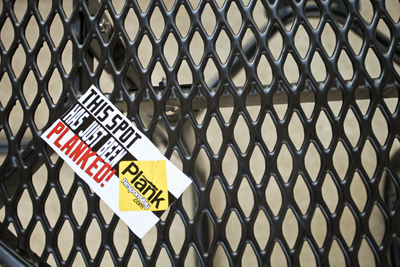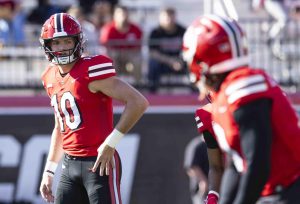WKU officials: Planker Webster violated code of conduct
August 15, 2011
WKU officials on Monday said they can remove anyone from campus, even incoming students such as Tyler Webster, who was banned by the Office of Judicial Affairs last week for planking and defacing the school with stickers advertising his plankresponsibly.com website.
Deborah Wilkins, chief of staff and general counsel at WKU, said the Office of Judicial Affairs gains its power to bar Webster from campus in two parts.
First, the university can and does tell people to stay off its property and not come back.
“Just because we are a public university doesn’t mean we are a public property,” Wilkins said. “The property is owned by the university for the use of its academic activities.”
And second, WKU holds the power to discipline any student if he or she violates rules found in the Student Code of Conduct.
“When you are a student, you voluntarily submit to all our student judicial policies which are established by Judicial Affairs,” she said. “Like any other student, if (Webster) applies to be a student at WKU, he agrees to be subject to all of those rules.”
Webster, an incoming WKU student and Bowling Green resident, was issued a “trespass order” last Tuesday in a letter from the Office of Judicial Affairs, banning him from all WKU property without prior permission. He provided the letter — marked confidential and signed by Michael Crowe, director of Judicial Affairs — to the Herald.
An inquiry was sparked after the Bowling Green Daily News profiled Webster and a friend last Monday planking around Bowling Green, including a front-page photo of Webster laying stiff as a board on the statue of former WKU President Henry Hardin Cherry, Wilkins said.
“I was really shocked,” Webster said on Sunday. “I figured if the Daily News let me do it, there was nothing wrong with it. I didn’t understand why I was causing so much trouble.”
Crowe’s letter was sent to Webster a day after the Daily News ran its story. The Office of Judicial Affairs follows a different procedure with students than it did in Webster’s case, which includes a meeting with Crowe before punishment is handed down.
“This action is taken based on your not being currently enrolled,” Crowe said in his letter to Webster.
Webster’s first official contact with WKU came through the letter from Crowe. He had to schedule a hearing with the Office of Judicial Affairs in hopes that the ban will be lifted.
Webster’s hearing and a Facebook event “WKU Plank Support for Tyler Webster” are scheduled for 10:30 a.m. Aug. 22 at Potter Hall. More than 200 people on the Facebook event, originally dubbed a protest, have indicated they are attending.
As of Monday, Webster was not listed in WKU’s online student directory, though officials continued to cite the Student Code of Conduct as part of why he’s no longer allowed on campus.
Howard Bailey, vice president for Student Affairs, said he couldn’t comment on the exact sections of the Code of Conduct that Webster breached because WKU “does not discuss the educational records of any student or prospective student.”
“The university has a responsibility to protect its community which includes the individuals within the community as well as the facilities,” Bailey said. “Whatever procedure to contact an individual that’s used is whatever is most convenient and most appropriate.”
But Wilkins said Webster’s actions possibly violated sections 17, 18 and 25 of the Student Code of Conduct by damaging and misusing WKU property. Possible punishments for breaking the Student Code of Conduct range from mandatory community service to, in worst cases, expulsion from WKU.
“You can’t go around and damage other people’s property by putting decals or stickers on them,” Wilkins said. “That’s called criminal mischief, and there is a specific Kentucky criminal code that applies to that. That’s one issue.
“The other is that he is using our property for purposes that it is not supposed to be used for and in ways that are endangering his safety.”
Wilkins said campus police could not act on the situation originally because they didn’t witness the planking in progress, placing it under the Office of Judicial Affairs’ jurisdiction.
“In this case, the police can only arrest you for this sort of crime if they have observed you doing something,” she said. “If they had driven by and observed him putting these decals on artwork and university buildings, they could have addressed it.
“Since that didn’t happen and he was kind enough to give his name and address to the newspaper and also post it on Facebook, that was all the information we needed to move forward internally.”
A record regarding Webster’s incident will be kept on file by campus police, according to Crowe’s letter.
Crowe did not return calls to the Herald on Monday for this story.













